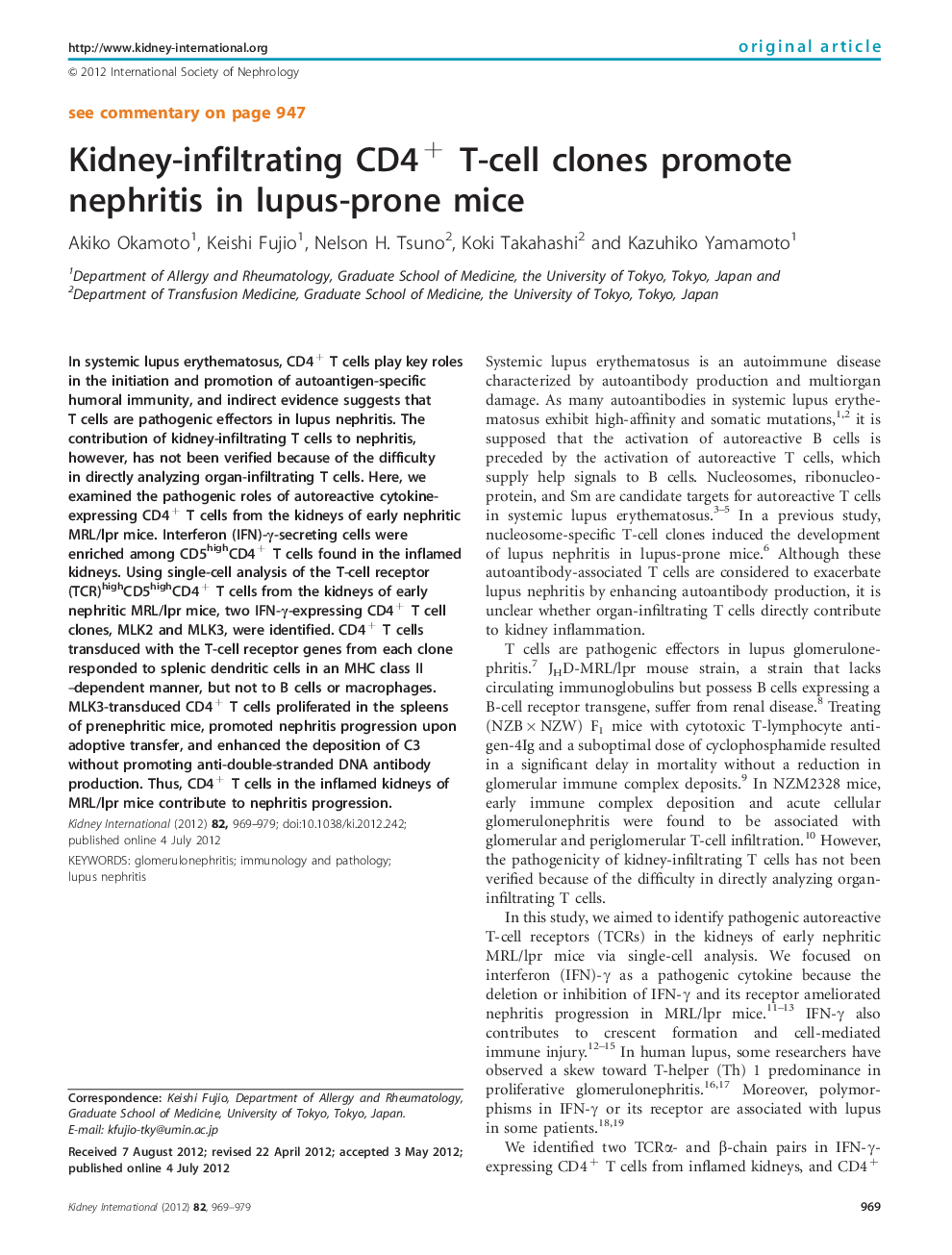| Article ID | Journal | Published Year | Pages | File Type |
|---|---|---|---|---|
| 3883178 | Kidney International | 2012 | 11 Pages |
In systemic lupus erythematosus, CD4+ T cells play key roles in the initiation and promotion of autoantigen-specific humoral immunity, and indirect evidence suggests that T cells are pathogenic effectors in lupus nephritis. The contribution of kidney-infiltrating T cells to nephritis, however, has not been verified because of the difficulty in directly analyzing organ-infiltrating T cells. Here, we examined the pathogenic roles of autoreactive cytokine-expressing CD4+ T cells from the kidneys of early nephritic MRL/lpr mice. Interferon (IFN)-γ-secreting cells were enriched among CD5highCD4+ T cells found in the inflamed kidneys. Using single-cell analysis of the T-cell receptor (TCR)highCD5highCD4+ T cells from the kidneys of early nephritic MRL/lpr mice, two IFN-γ-expressing CD4+ T cell clones, MLK2 and MLK3, were identified. CD4+ T cells transduced with the T-cell receptor genes from each clone responded to splenic dendritic cells in an MHC class II–dependent manner, but not to B cells or macrophages. MLK3-transduced CD4+ T cells proliferated in the spleens of prenephritic mice, promoted nephritis progression upon adoptive transfer, and enhanced the deposition of C3 without promoting anti-double-stranded DNA antibody production. Thus, CD4+ T cells in the inflamed kidneys of MRL/lpr mice contribute to nephritis progression.
